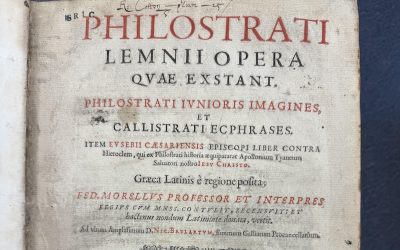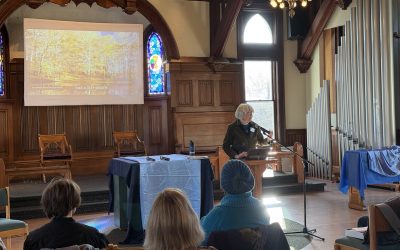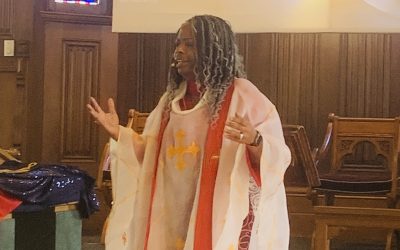Hosted by Drew’s Africana Studies and Creative Writing programs
Enlarge

February 2024 – Drew University’s Writers@Drew welcomed author Tiphanie Yanique.
Yanique, a former assistant professor of creative writing and Caribbean literature at Drew, gave a passionate reading from her novel Monster in the Middle, a Library of Congress Great Read for 2023.
She is also the author of novel Land of Love and Drowning, winner of the Flaherty-Dunnan First Novel Award from the Center for Fiction, the Phillis Wheatley Award for Pan-African Literature, and the American Academy of Arts and Letters Rosenthal Family Foundation Award.
Her poetry collection, Wife, won the United Kingdom’s Forward/Felix Dennis Prize for a First Collection, while her debut short story collection, How to Escape from a Leper Colony, won the Bocas Prize in Fiction. Yanique is also a professor of English and creative writing at Emory University.
The event was moderated by Courtney Zoffness, associate professor of English and director of Drew’s Creative Writing program, and Tami Navarro, assistant professor and chair of the Africana Studies program.
Zoffness, Navarro, and members of the student, faculty, and staff audience asked the author a series of questions that took a deep dive on genre, race, inspiration, and more.
Can you speak to your relationship with genre?
I reject the idea that I have to be one thing. In the Caribbean, writers often work in multiple genres. For me to embrace the genres is part of who I am, and probably who many of us are. Many of us start off and want to be writers and write in all the genres, and the world tells us “no.” I encourage you to resist that and change that narrative.
Enlarge

How do you handle race in your work?
At Emory, I teach a course about writing outside of your lived experience. It’s really hard to do, you’ll mess it up—but you have to do it. It’s called bravery. Otherwise you’ll be perpetuating racism in your writing by erasing color. Do what the world needs and write real stories and poetry that encapsulates the full human experience. I have taken that to heart, and do my best to do that work myself by writing characters that are diverse in all kinds of ways.
Can you discuss your approach to writing about women and girls?
If you read literature about girls, often something has to happen tragically to their bodies before they transition into womanhood. Our literature has done that to us. But boys get to have adventures. For me, rethinking that narrative and what kind of realistic adventures girls can have is really important to me. I want to find ways that acknowledge that women do have bodies, while asking, “What are the other ways we can get to womanhood?” As an English major, I knew I wanted to write in a Black, feminist, Caribbean tradition.
How can one write fiction that engages history?
Do an incredible amount of research so that it becomes banal, and then you can let go of the big historical stuff. What we need in fiction is the personal stuff to move you emotionally and intellectually. For me, it’s about doing so much research that it becomes very normative and allows my characters to function as regular people.
How do you write about characters or relationships you are not familiar with?
I go to literature for inspiration. I have to surrender what is my native voice to the voice of particular characters, and I use other writers to help me do that.
How do you translate Blackness across multiple spaces and weave in oral history and archives?
I think the work of contemporary Blackness is speculative. As BIPOC people, we are creating narratives that have not been told before and filling holes in the archives that could not be filled otherwise. Part of our job is to reinvent it. Go to the archives, as a person in the Diaspora, and find out where the holes are and breathe magic into those holes to create life that was not there before. If you’re writing with your ancestors on your shoulders, you’re doing magic work.
The free event was co-sponsored by The Casement Fund, the English department, and the Africana Studies department.


